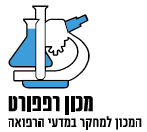
Prof. Yehudit Bergman
Prize for an Established Researcher
Through a series of pioneering studies, Prof. Yehudit Bergman and colleagues, from The Hebrew University Medical School of Jerusalem, have brought about a scientific revolution in the fundamental understanding of one of the basic quandaries of immunology, i.e., immunoglobulin allelic exclusion, a process that is required for generating antibody diversity and thus critical to the functioning of the immune system. It was thought that allelic exclusion occurs through a simple stochastic process in each cell. Prof. Bergman’s studies challenged this concept and proved that allelic choice is actually carried out through a clear-cut epigenetic pathway that is pre-programmed during development. Her lab showed that his fundamental mechanism also plays a key role in other gene selection systems (comprising 10% of the genome) such as smell and taste perception, cytokine expression, cell migration, and chemokine interactions. Her findings thus represent a fundamental aspect of cell identity and gene diversity and therefore contribute to many aspects of medicine, including immunology, physiology, neurology, and development.
Yehudit Bergman and colleagues’ studies contributed to stem cell biology, deciphering the complete mechanism that underlies the silencing of embryonal-specific genes, as a function of embryonic cell differentiation. These discoveries serve as the basis for the understanding that DNA methylation is the major barrier to reprogramming of somatic cells to embryonic cells, an area that is important for every discipline in medicine.
The inflammatory process is a major contributor to aging and cancer. Yehudit Bergman’s lab has studied the involvement of inflammation-induced epigenetic changes in Intestinal Bowel Diseases (IBD) and cancer. The Bergman lab has shown that microbiota-induced epigenetic reprogramming is necessary for proper intestinal homeostasis in vivo, priming the cells for future challenges, a beneficial effect. In contrast, they have shown that microbiota-induced inflammation can cause intestinal cells to become prone to tumorigenesis by an epigenetic event, a deleterious effect. Balancing these two epigenetic states has far-reaching consequences in medicine.



